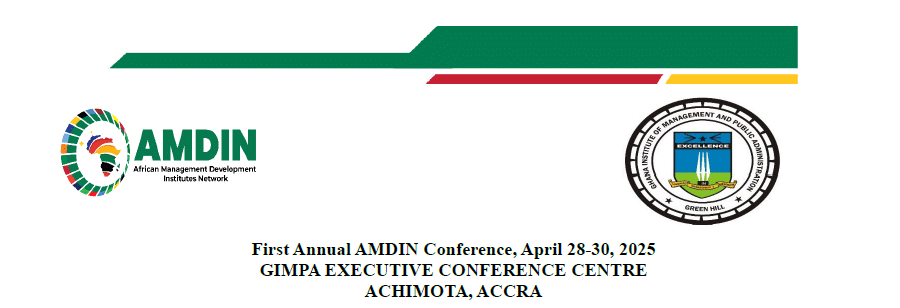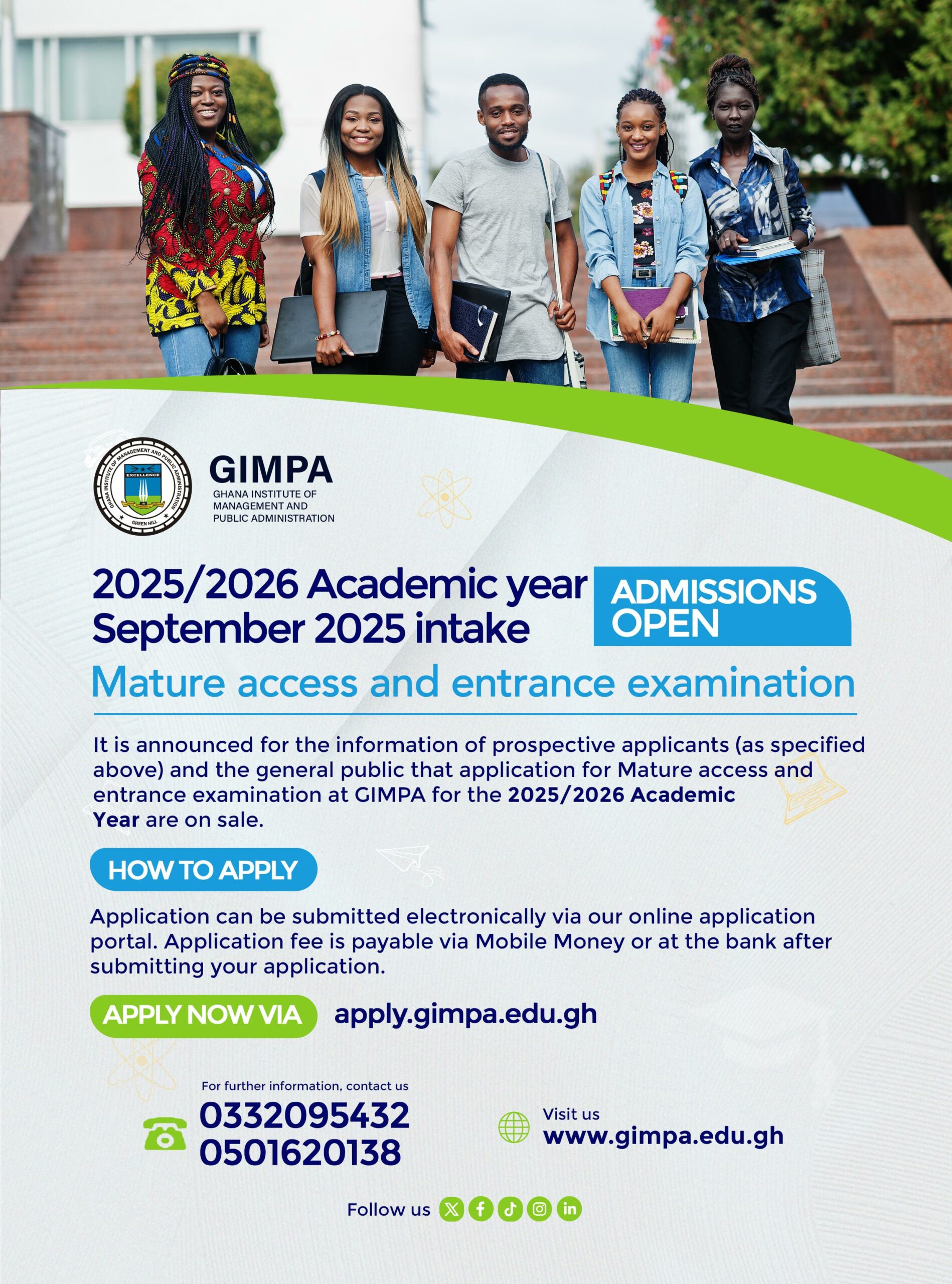School Of Liberal Arts and Social Sciences
The School of Liberal Arts and Social Sciences at our institution is dedicated to providing a high-quality education, fostering intellectual growth, and advancing research in diverse fields. We are committed to equipping students with the necessary skills and knowledge to navigate the complex challenges of today’s society.
School Of Liberal Arts and Social Sciences

Dean’s Message
Prof. Samuel Agyei-Ampomah
Dean, School of Liberal Arts and Social Sciences
It is my great pleasure to welcome you to the School of Liberal Arts and Social Science, GIMPA.
Departments School of Liberal Arts and Social Sciences (SOLASS)

Department of Economics and Hospitality Studies, SOLASS

Department of Liberal Arts and Communication Studies, SOLASS
Academic Programmes
Undergraduate Programmes
Department of Economics and Hospitality Studies
BSc in Tourism and Hospitality Management
Graduate Programmes
Department of Economics and Hospitality Studies
Master of Science in Economic Policy
The Master of Science in Economic Policy is a one-year programme designed to develop knowledge and expertise in the areas of economic policy analysis and management. The programme is designed to:
- Train analytically skilled personnel in the area of economic policy-making for business, government, and society needed to fill roles within government, the public sector and various organisations;
- Equip students with the requisite knowledge and in-depth understanding of core economic and relevant management models for policy analysis and decision making within various organizations; and
- Prepare students for successful employment in government, not-for-profit institutions, international organizations, and the private sector in the area of economic policy analysis.
Master of Science in Energy Economics
The Master of Science in Energy Economics is a one-year programme open to first degree holders interested in developing expertise in energy resource analysis and management. The programme is designed to:
- Train analytically skilled personnel in the area of energy economics, energy policy and policy for business, government, and society. Such personnel are needed to fill policy-making roles within public and private energy sectors, and various international organizations.
- Equip students with an in-depth understanding of core economic and relevant management models for Energy resource management to enable them work as energy resource/policy analysts in the energy industry.
- Prepare students for successful employment in government, not-for-profit institutions, international organizations, and the private sector in the area of energy policy analysis and beyond.
Master of Science in Financial Economics
The Master of Science in Financial Economics is a one-year programme designed to develop knowledge and expertise in the area of Financial Economics. The programme is designed to:
- Train analytically skilled personnel in the area of financial economics to fill roles within government, private sector, and international organizations.
- Equip students with the requisite knowledge to support efforts at improving markets by improving the financial sector, developing new commodity markets and exchanges, and deploying other knowledge on market performance-improving mechanisms to promote the economy of Ghana.
- Prepare students for successful employment in government, not-for-profit institutions, international organizations, and the private sector in the area of finance, financial markets and beyond.
Master of Philosophy in Economics
The Master of Philosophy in Economics is a two-year programme designed to provide advanced knowledge and skills in economics. The aim of the programme is to:
- Train analytically skilled personnel in the area of advanced economics for a career as an economist in academic and research institutions, consultancy, business, public service, government and non-governmental organisations.
- Equip students with the requisite knowledge and research skills to conduct independent research.
- Provide a strong foundation in economics and research skills to proceed to PhD programmes.
Department of Liberal Arts and Communication Studies
M.A. Development Communication
This is a unique programme designed to address development challenges and to close the poverty gap. Its strength is undergirded by the matrices of Indigenous Knowledge (IK) and Information Communication Technology (ICT). It is driven by nuanced diffused development communication strategies to galvanize multifaceted development at the community, national and international levels. The programme develops synergies for sustainable development approaches and knowledge transfer for secured livelihoods. It adopts new trajectories and places emphasis on critical analysis, case studies and application of development and communication strategies within contexts. The programme positions participants for careers in both local and international Governmental and Non-Governmental Organizations and for self-employment as entrepreneurs. Some of the key courses offered are: Stakeholder Engagement; Development Communication Strategies; Health Communication; NGOs Management and Development; and Documentary Production among others.
M.A. Public Relations
The Master of Arts in Public Relations is designed to address specific needs in the public relations industry. It has a cutting-edge design and execution strategies. The emphasis is on quality application of scientific research tools using ICT as the key driver to impact the PR industry, management and administration as a whole. We train graduates who are research-minded, critical thinkers, problem-solvers, and ready to meet greater challenges of the 21st century. As part of the social contract, we train and prepare graduates/professionals to become entrepreneurs and innovators and to take-up managerial roles in both the private and public sector. Some of the key courses at the heart of the programme are: Stakeholder Engagement; Corporate Communication; Protocol and Event Management; Public Speaking and Presentation Skills; and Documentary Production among others.
Admissions
The general minimum admission requirements for our Master’s programs are:
- A Bachelor’s degree (or the equivalent) with a minimum of 2nd Class Lower Division from a recognized university.
- Applicants with the third class may be accepted subject to relevant work experience, passing an entrance examination, and an interview.
The general minimum admission requirements for our undergraduate programmes are:
- West African Senior Secondary Certificate Examination (WASSCE); A minimum grade of C6 in six subjects: Integrated Science, Mathematics (Core), English Language and three (3) electives.
- Other equivalent qualifications as approved by the Ghana Tertiary Education Commission.
- Applicants with a relevant HND qualification may be considered for admission at Level 200 or 300.
- Applicants in this category should contact the School for further details.
International Applicants
SOLASS accepts applications and admits students from many different countries. We work with the Ghana Tertiary Education Commission (GTEC) to determine acceptable entrance qualifications for international students, as required.
Why Study at GIMPA, School of Liberal Arts and Social Sciences (SOLASS) ?
- SOLASS provides through its Faculty and Administrative Staff:
- A world-class education embedded in relevant content informed by the latest research and industry practice
- A wide range of visiting industry experts to share their insights of how the industry works
- A friendly and collegial environment for learning, where students benefit from being taught by staff who have strong links with policy-makers and industry
- Clear and fair academic regulations, assessment criteria, policies, and procedures
- Advice, guidance, and pastoral support to our students
Frequently Asked Questions
Where can I get application forms?
How much is the application fee?
Application fees are as follows:
Masters/Postgraduate Diploma - GHC 250
Bachelors (including WASSCE LLB)/Diploma –GHC 200
International Students- USD 100
What number can I call for enquiries?
Tel num./whatsapp: +233504669564 Email address: solass@gimpa.edu.gh Email: admissions@gimpa.edu.gh
What is the duration of your degree programmes?
- Undergraduate programmes are usually 4 years.
- Masters programmes are for 1 or 2 years, depending on the programme.
- Post Graduate Diploma programmes are usually a year.
- However, you are encouraged to confirm with your prospective secretariat as some programmes may have a unique timeline.




